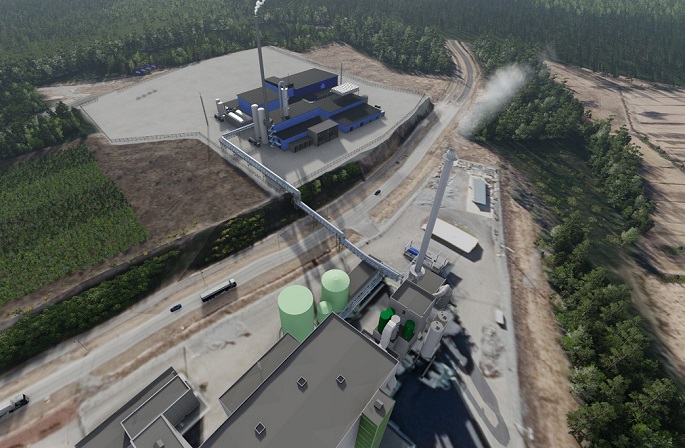Gasum, Nordic Ren-Gas to bring renewable e-methane to market
Published : 10 Jan 2024, 02:50
Finnish state-owned energy company Gasum and the leading Nordic Power-to-Gas developer Nordic Ren-Gas signed a long-term sales and purchase agreement whereby Gasum will buy all of the e-methane produced by Nordic Ren-Gas at its Tampere plant from 2026 onwards and distribute it to its customers, said Gasum in a press release on Tuesday.
Nordic Ren-Gas will develop, build and operate the Tampere Power-to-Gas plant, which produces e-methane using renewable electricity from Finnish wind power and biogenic carbon dioxide captured from existing power plants.
In the Power-to-Gas process, hydrogen is first produced using renewable electricity and water. The hydrogen is then further processed into e-methane by combining the hydrogen with biogenic carbon dioxide. E-methane produced in this way is fully renewable, and will replace fossil fuel usage in transportation, maritime and industrial sectors.
“This partnership is a massive game changer with the possibility to expand the availability of renewable gas at an industrial scale. The e-methane produced by Nordic Ren-Gas is a competitive renewable fuel, which can be efficiently distributed through our existing infrastructure to our customers in the traffic, maritime and industry segments. Nordic Ren-Gas has an impressive pipeline of similar projects on the way – this is a strategically important partnership for us”, said Mika Wiljanen, Chief Executive Officer of Gasum Group.
“Ren-Gas has been actively building a value chain for e-methane in Finland, for which this agreement is a concrete milestone. Ren-Gas has a development portfolio of several e-methane production projects, and this partnership enables us to accelerate the development of these important green transition projects”, said Saara Kujala, Chief Executive Officer of Nordic Ren-Gas
The Tampere Power-to-Gas plant will initially produce approximately 160 gigawatt hours (GWh) of renewable e-methane per year starting in 2026. Nordic Ren-Gas has developed a unique operational and technical design for its Power-to-Gas plants to meet all the requirements of the EU Renewable Energy Directive on renewable liquid and gaseous fuels of non-biological origin (RFNBO) for its e-methane.
The Tampere plant is located next to the existing Tammervoima waste incineration plant, which is operated by Tampere Energia. Nordic Ren-Gas will capture the biogenic CO2 from the flue gas of the Tammervoima plant, and use it in the Power-to-Gas process to produce e-methane.
Nordic Ren-Gas is maximizing the value of sector integration by providing the excess process heat to the Tampere district heating network, and by utilizing the existing electricity grid connection available. Utilization of the existing infrastructure and efficient sector integration allows for a rapid development timeline and cost efficiency in Ren-Gas’s e-methane production.
E-methane can be directly used in gas engines currently running on natural gas, biogas, LNG or LBG/Bio-LNG and it can be blended in at any ratio. There is no need for any additional investments in new equipment or modifications for companies who already own gas-run vehicles or ships.
LNG-fueled ships are already in use and their number is increasing dramatically in the next few years. Similarly in land transportation, the number of long-haul trucks running on liquefied biogas have been steadily increasing especially in the Nordic countries, as customers are demanding carbon neutral logistics for products.
Unlike alternative fuels such as ammonia or methanol which are still in the development stage both in terms of production and infrastructure, e-methane is an already existing plausible pathway to decarbonizing maritime as well as heavy road transportation in just a few years.
Gasum’s strategic goal is to bring seven terawatt hours (7 TWh) of renewable gas yearly to market by 2027. Achieving this goal would mean a yearly cumulative carbon dioxide reduction of 1.8 million tons for Gasum’s customers.


